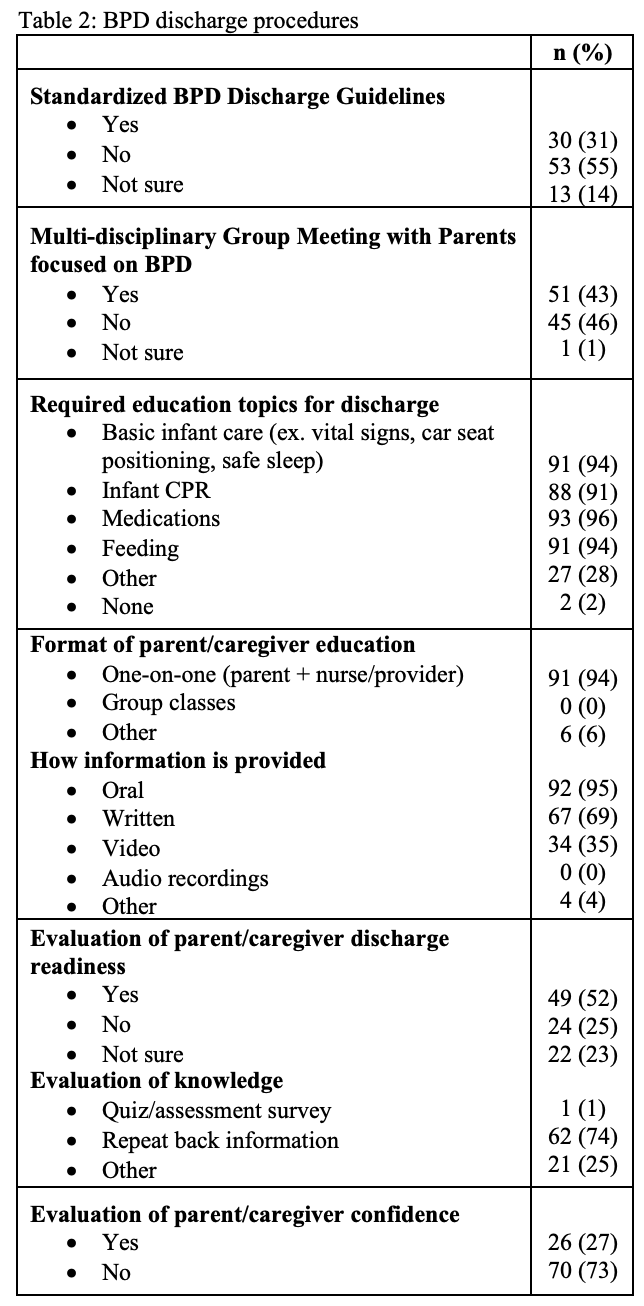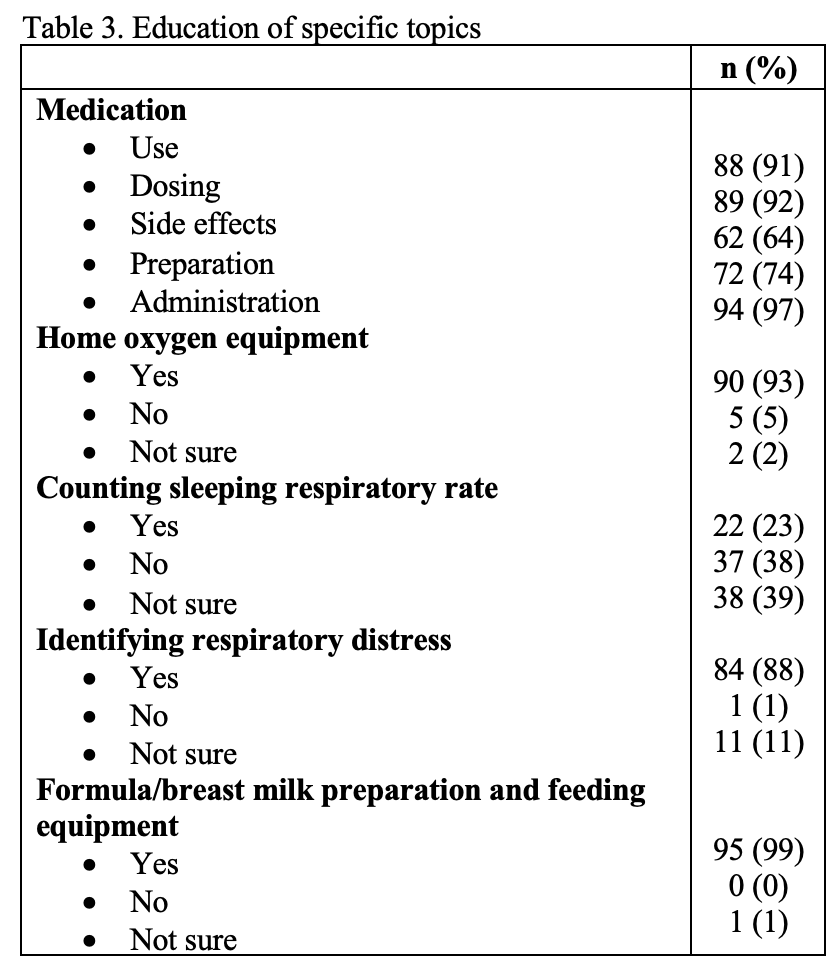Neonatology
Session: Neonatal-Perinatal Health Care Delivery: Practices and Procedures 2
463 - Parental Education and Discharge Planning for Infants with Bronchopulmonary Dysplasia – A Questionnaire Survey of North American Neonatologists
Monday, May 6, 2024
9:30 AM - 11:30 AM ET
Poster Number: 463
Publication Number: 463.2997
Publication Number: 463.2997
- NH
Naveed Hussain, MBBS, DCH (he/him/his)
Professor of Pediatrics
Connecticut Children's Medical Center
Farmington, Connecticut, United States
Presenting Author(s)
Background: Bronchopulmonary dysplasia (BPD) is a complex condition in premature infants that requires multiple medications and the potential need for assistive breathing devices before NICU discharge. It is critical that parents and caretakers are adequately prepared for home-based care of these infants. Currently, there is no standard method for educating caretakers of infants with BPD before discharge.
Objective: Determine how North American NICUs educate primary caretakers of infants with BPD in preparation for discharge and how caretakers’ knowledge, ability, and confidence are evaluated.
Design/Methods: We did a cross-sectional questionnaire-based study of neonatologists in North American NICUs. An online survey was distributed to members of the American Academy of Pediatrics, Section on Neonatal-Perinatal Medicine that focused on how they prepare caretakers of infants with BPD with medical knowledge and discharge readiness practices. Responses were collected in REDCap and descriptive data analyses were done using Microsoft Excel®.
Results: There were 143 responses and 97 were complete. Tables 1-3 depict descriptive analysis of the responses reported as percentages. All the respondents were from Level III and Level IV NICUs, with most discharging between 11-50 infants with BPD per year. Thirty-one percent of respondents reported having standardized guidelines or teaching documents for preparing caregivers for discharge, but over half (55%) reported no standardized guidelines. Less than half (43%) of respondents reported BPD-focused multidisciplinary meetings with parents prior to discharge. Most NICUs require caretaker education on basic infant care, infant CPR, medications, and feeding before discharge. Most common education method was oral instruction on a one-on-one basis. Table 3 summarizes common topics covered during teaching. Formal evaluation of caretakers was done by 52% of respondents, with the primary modality (74%) being the teach-back method. Few NICUs (27%) report evaluating caregiver confidence in caring for their infant with BPD.
Conclusion(s): While many NICUs provide education on various newborn care issues before discharge, this was not specific to BPD. Few NICUs have standardized education guidelines, and assessments for caretaker knowledge, capability, or confidence are not usually done before an infant with BPD is discharged.
.png)


